Are you thinking about starting an ecommerce business? Awesome! It’s the right time to enter this field. According to statistics, worldwide e-retail sales are expected to grow to $4.8 trillion by 2021. In fact, ecommerce is growing so quickly that it’s expected to serve a staggering 2.14 billion people. Of course, there are many more benefits of ecommerce, which we’ll discuss below.
In this article, you’ll discover the advantages and disadvantages of online stores so that you can decide for yourself if this is the right business type for you. These advantages of online business will help you stay excited and motivated throughout your entrepreneurial journey.
Post Contents
- What Are the Advantages of Ecommerce?
- Ecommerce Advantage #1: Low Financial Cost
- Ecommerce Advantage #2: 24/7 Potential Income
- Ecommerce Advantage #3: Sell Internationally
- Ecommerce Advantage #4: Easy to Showcase Bestsellers
- Ecommerce Advantage #5: Personalized Online Experience
- Ecommerce Advantage #6: Affordable Employees
- Ecommerce Advantage #7: Easier to Encourage Impulse Buy
- Ecommerce Advantage #8: Easy to Retarget or Remarket to Customer
- Ecommerce Advantage #9: Customers Get a Less Invasive Experience
- Ecommerce Advantage #10: Gain Access to Customer Data Easily
- Ecommerce Advantage #11: Able to Process a High Number of Orders
- Ecommerce Advantage #12: Can Scale Business Quickly
- Ecommerce Advantage # 13: Grow Your Business Organically with Content
- What Are the Disadvantages of Ecommerce?
- Ecommerce Disadvantage #1: No One Can Buy During a Site Crash
- Ecommerce Disadvantages #2: Customers Can’t Try Before They Buy
- Ecommerce Disadvantage #3: Ecommerce Is Highly Competitive
- Ecommerce Disadvantages #4: Customers Can Be Impatient
- Ecommerce Disadvantage #5: Shipping Times Can Be Lengthy
- Ecommerce Disadvantages #6: Physical Retail Is Still More Popular Despite Decline
- Want to Learn More?

Don’t wait for someone else to do it. Hire yourself and start calling the shots.
Get Started FreeWhat Are the Advantages of Ecommerce?
You came to learn what are the advantages of having an ecommerce business. Top of the list of advantages of ecommerce is the low financial cost, but other pros include selling internationally, retargeting customers, personalization of the buying experience, etc. These benefits of ecommerce will help you determine if starting an online store is right for you.
Ecommerce Advantage #1: Low Financial Cost

One of the ecommerce benefits is that it has a lower startup cost. Physical retail stores have to pay up to thousands of dollars to rent one of their store locations. They also have several upfront costs such as store signs, store design, buying inventory, sales equipment, and more. And let’s not forget, the store owner also has to hire staff to work and run each location. They may also need to hire security staff depending on the product value in the store.
However, for an ecommerce dropshipping store, startup costs are estimated at $418and ecommerce stores only pay $3192 a year on Shopify at most for virtual ‘rent’. Shopify also includes an easy to use platform, hosting, free Shopify themes, great apps like Oberlo, and lots of other great perks.
Depending on what type of ecommerce business you run, you may only need to hire employees when you grow to a certain level. As your online store is online, these employees can work remotely, making it easier to find staff that will suit your company.If you choose to dropship online, you won’t need to buy bulk inventory saving you a lot of money.
Branding is also cheaper with ecommerce. Your store logo is often more affordable than a store sign. And graphic designers (yes, even the best ones), often cost less than what an offline paint job will cost you. Your business expenses are generally much lower., which is one of the most attractive benefits for new entrepreneurs.
Ecommerce Advantage #2: 24/7 Potential Income

Another advantage of ecommerce is that online stores are always open for business. With Facebook ads, you can attract someone at 11 p.m. or 4 a.m. in any part of the world. In contrast, Most physical location stores are operational between 9 a.m. to 9 p.m., giving you a competitive edge. By being available at all hours, you can attract people who would normally pick up a product in stores if the outlet were open.
Think about your audience who don’t work normal hours or who are too busy to pop into a shop to buy something. An ecommerce store allows you to attract those who may have odd work schedules or who don’t have time to shop in-person.
What about customers who order at night? Well, you don’t need to have employees working a night shift to accommodate their requests. All you need to do is automate your ordering systems so that customers receive a confirmation email when they place their order to give them peace of mind.
And there’s one more benefit of opening an online store over a brick and mortar shop: you’ll never need to hire a security guard!
Ecommerce Advantage #3: Sell Internationally

Next on the list of ecommerce benefits is that a new brand can easily sell to customers worldwide. You can discover your audience whether they’re in the U.K., South America, or neighboring countries. If you choose to dropship from AliExpress, many products offer affordable ePacket shipping or free shipping. This allows you to price and ship your products competitively to a worldwide audience.
Selling worldwide is a great feat as it helps you build your brand a lot faster, broadens your marketplace exponentially, and allows you to see profit long before your local competitors. Plus, with our international shipping tips, you might be able to avoid many of the headaches associated with shipping products across borders.
Ecommerce Advantage #4: Easy to Showcase Bestsellers

Ecommerce benefits like displaying best-sellers make it easier to show off products to your customers. While you can design a brick and mortar store to sway people to buy certain products, compared to going through different aisles and shelves, it’s easier for a customer to find the best-sellers in an online store.
The reason why you want customers to buy your best-sellers is that they’re proven. Other customers have already bought them and are happy with their purchase. If you want to showcase new products to customers, you can include them in your upsell, email marketing, or retargeting ads. With an ecommerce store, you can include great product photography and product descriptions to sway the customer’s choice.
Ecommerce Advantage #5: Personalized Online Experience
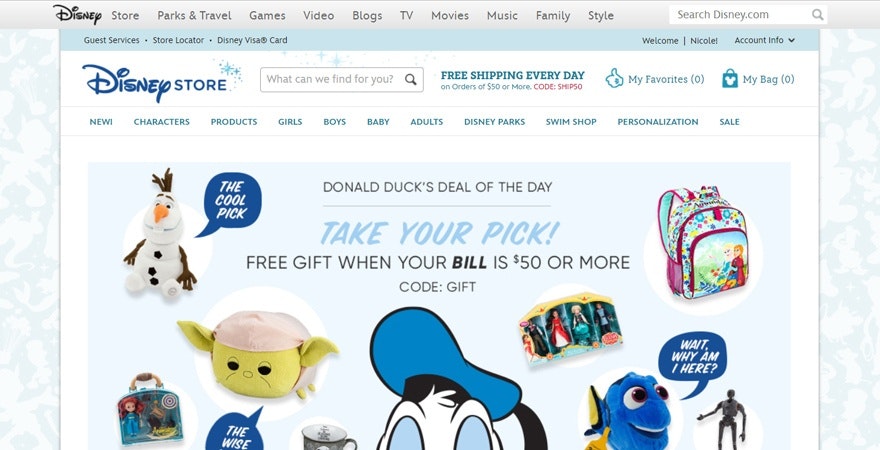
Website personalization can help enhance the online shopping experience. One of the biggest online business advantages is that you get to create personalized landing pages for different audiences. This can entice them to buy from you without much extra work on your part. It is not like customers coming into a physical store who you need to nurture from the first minute. You can do all the hard work before you launch a campaign and then relax once you start marketing to your customer base.
You can also personalize the experience you provide through your email marketing campaigns. Try segmenting your email lists based on purchases made, location, or even how much money a customer spent. Another recommendation is to retarget customers who visited your online store, showing them an ad for a product they added to their cart and forgot about. If your online business has a login feature, you can have a welcome message appear such as ‘Welcome back (name).’
Product bundles can help the customer buy more for a better price, increasing the average order value. You can also personalize upsells based on what the customer has looked at or what you think they might like based on their purchase behavior.
Ecommerce Advantage #6: Affordable Employees

One of the benefits of ecommerce is that hiring employees is affordable and, as mentioned before, you can hire from anywhere in the world. You can choose to outsource work to virtual assistants in countries where the cost of living is much lower.
You’ll need fewer employees in an online business than in a retail location. A huge advantage of online businesses is you don’t need to hire employees at launch. You can start and run an ecommerce business all by yourself. Only when you start to grow or when you have the capital should you start to build a team.
Ecommerce Advantage #7: Easier to Encourage Impulse Buy

Another ecommerce benefit is that you can capitalize on impulse buying as online shoppers are more inclined to partake in this. If you have attractive product photography, with vibrant color or human emotion, you can create ads that drive impulse buys.
You can also execute a range of scarcity tactics such as countdown timers or showcasing limited quantities to encourage people to buy. Additionally, if you have a new or limited-edition item in your inventory, consider testing it out for impulse buys to see how people respond. As impulse shoppers tend to be more social and image-concerned, they may buy for an opportunity to boast that they got the latest product before anyone else.
Ecommerce Advantage #8: Easy to Retarget or Remarket to Customer
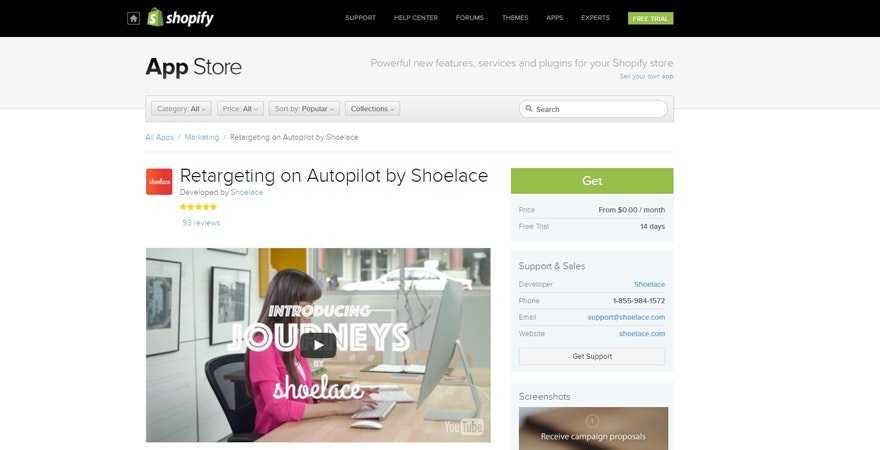
It’s easy to create retargeting ads to reach out to customers in your area when running an online business, making it one of the most profitable ecommerce benefits. You can create a Facebook Pixel to display ads to your potential customers in their Facebook feeds. You can use the Shoelace Shopify app to retarget the people who visit your store but don’t buy.
With ecommerce stores, you can retarget people who add products to their cart butabandon and don’t buy, or those who visit a blog post and never buy. You can collect email addresses easily with an effective pop-up or lead magnet and continue marketing to your customers after they leave your site.
Ecommerce Advantage #9: Customers Get a Less Invasive Experience

Some people dread walking into a brick and mortar store as they’re forced to interact with the store’s employees. Whether learning about a sales promotion or being asked questions throughout the shopping experience, certain customers may prefer online shopping as it can be a little less invasive, making it one of the best benefits of ecommerce.
If a customer wants to contact the store owner, they can click on a live chat feature, email, or send a Facebook message. The store owner, in turn, can train the customer service staff to answer queries effectively. When the staff is not around, they can use a Facebook chatbot to point customers towards FAQs and other self-help resources.
Ecommerce Advantage #10: Gain Access to Customer Data Easily
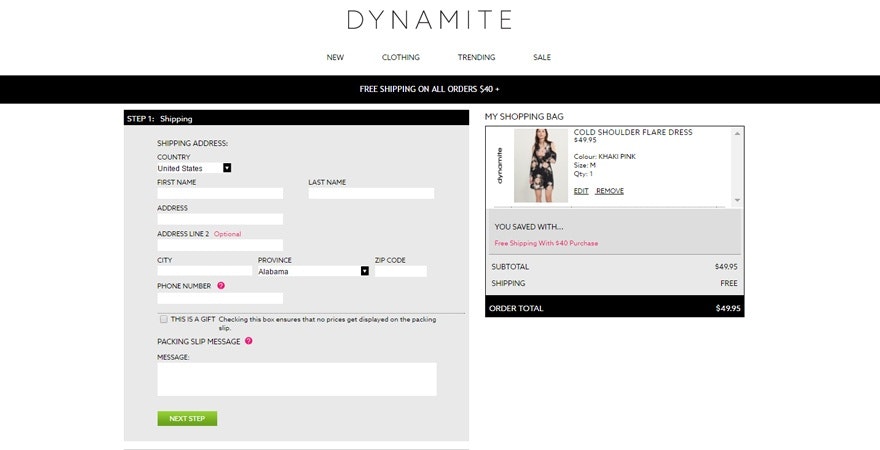
One of the best ecommerce advantages is that you can easily gain access to data for analysis on your customer. Most people feel uncomfortable giving away email addresses or postal codes to physical retailers. In ecommerce, you can get your customer’s name, mailing address, email address, and phone number. That means you have at least three different ways to communicate and build a relationship with them.
You can even have them fill out marketing surveys, share their birth date with you, and more. If you ask them to create an account, you can obtain even more information to better serve them. If your customers are based within Europe, be careful of GDPR regulations when contacting them.
Ecommerce Advantage #11: Able to Process a High Number of Orders

If you choose to dropship, you can process a high number of orders with ease. As your business continues to grow, you might choose to hire employees to help with order processing. Also, with dropshipping, you don’t need to physically have the product to sell it to a customer. Therefore you do not have to worry about stock control like physical stores have to.
In retail stores, long queues can deter people from shopping. With ecommerce, there’s no waiting time. A customer can place orders on their own schedule with no delays, allowing you to accept a high number of orders.
Ecommerce Advantage #12: Can Scale Business Quickly

One of the benefits of ecommerce is that it’s easy to scale the business. You can increase your ad budget when people are clicking and buying without worrying too much about keeping up with the demand, especially if you dropship.
With brick and mortar stores, it can be hard to grow product lines or add more cashiers due to finite space. You’ll need to find a bigger space, renovate or wait for your lease to end in order to scale your business. If you create informational products, you run into a challenge again as it takes time to write ebooks, courses, and more.
With the dropshipping ecommerce model, you can add new products to your store without having to worry about shipping products or holding inventory, allowing you to grow quickly.
Ecommerce Advantage # 13: Grow Your Business Organically with Content

With ecommerce, you can grow organic traffic and sales with ecommerce blogging. From making videos to writing blog content, you’ll be able to optimize your store to drive traffic and sales without having to spend more money. Plus, you’ll be able to not only get traffic organically through content creation but you’ll also be able to monetize those customers with retargeting ads.
A brick and mortar retailer would need to market to their customers to encourage visits or ensure they’re located in a high traffic area to get more shoppers.
What Are the Disadvantages of Ecommerce?
As with every pro, there is a con. So, when starting an online store, it is important to be realistic. Below are a few ecommerce disadvantages that merchants typically experience, which do not apply to a physical store.
Ecommerce Disadvantage #1: No One Can Buy During a Site Crash
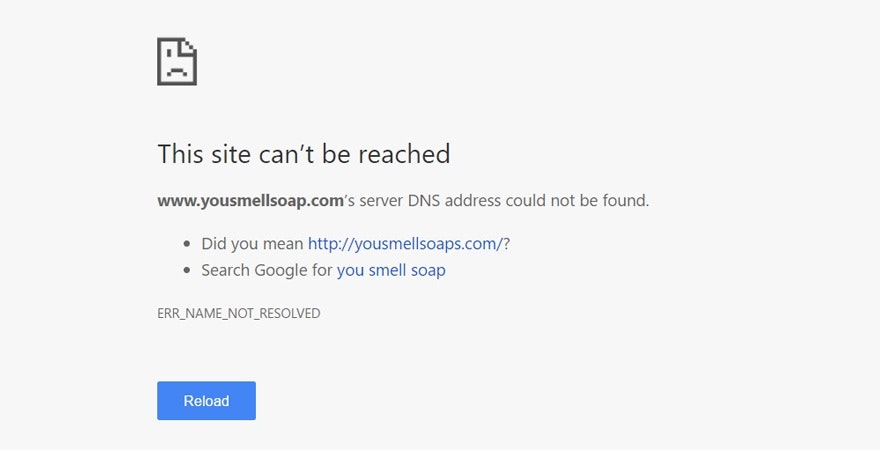
The worst of the ecommerce disadvantages is when no one can buy from your store if your site crashes. That’s why it’s important to ensure your website is hosted on the right platform. For example, if you’re paying the minimum hosting fee and get a surge in traffic from a high converting ad or a television shout-out like Shark Tank, your site will likely crash.
Fortunately, ecommerce solutions like Shopify offer free hosting in their monthly fee, allowing you to have one of the best servers on the market. In recent memory, there was only one time where sites were down. However, ecommerce stores weren’t the only sites affected. Twitter, Spotify, Soundcloud, and more were affected by this crash. The issue was resolved the same day. Yet, site crashes on platforms like Shopify are so rare that it’s likely not to cause problems in your business.
Ecommerce Disadvantages #2: Customers Can’t Try Before They Buy

While this is currently a problem for many retailers, this won’t be a long-term problem. With augmented reality, more stores are starting to add AR elements to their store to allow customers to try products on. Augmented reality ecommerce companies offer solutions for businesses to create a more interactive experience with your customers.
How exactly does AR work? You can check out Sephora’s Virtual Artist app for an example. The beauty retailer offers an augmented reality experience where customers are able to try on different eyeshadows, lip colors, and more virtually.
Ecommerce Disadvantage #3: Ecommerce Is Highly Competitive
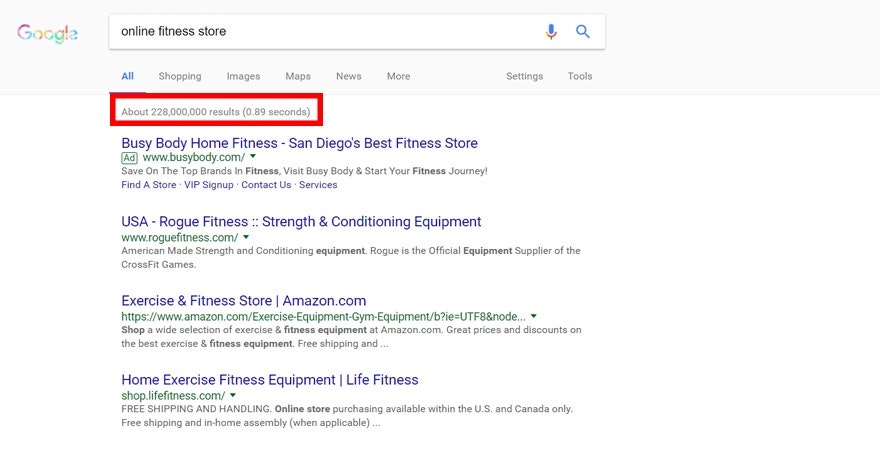
Battling for customers is another one of the worst ecommerce disadvantages. The reality is the best niches are often the most competitive. That’s why so many entrepreneurs are drawn to them. However, the more competitive a niche is, the more expensive ads for that niche are. There are a couple of ways around this. First, you can execute a different marketing strategy than your competitors.
If all your customers are being targeted by competitors through Facebook ads, you might try ranking organically with SEO optimization. If all your competitors are using Pinterest, you might try Instagram marketing if your audience is very visual.Second, if your ads are expensive, you can send traffic to blog posts and retarget your customers who visit them to create lower-cost ads. Working on CRO campaigns can help you be much more successful than your customers.
Ecommerce Disadvantages #4: Customers Can Be Impatient
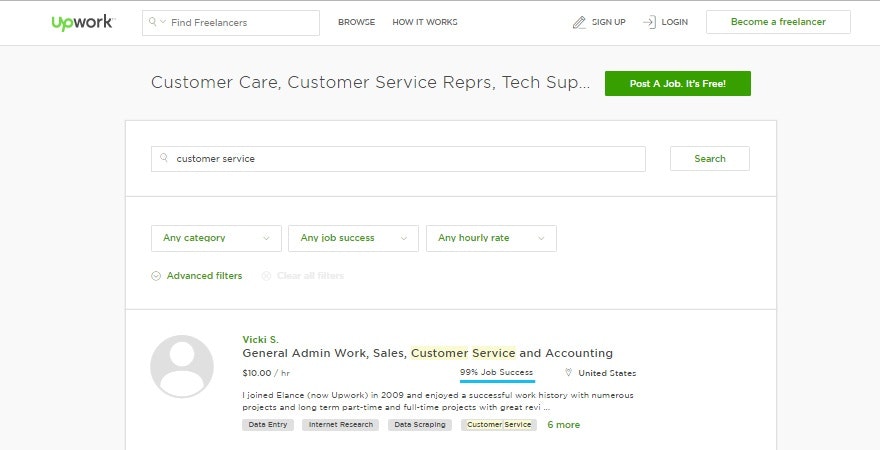
If a customer has a question in store a salesperson is on the floor ready to answer them. However, an ecommerce disadvantage is that most businesses experience a delay responding to customer inquiries. The reality is most customers expect a response from a business within the hour on social media. If you delay in responding to their message, they can become angry and shop somewhere else instead. You need to be online 24/7.
You can hire customer service representatives who are trained to make your customers happy via Upwork. Or you can work with a chatbot to help customers find their answers any time of the day or night. But all of this still doesn’t equate to a person who is able to look after each customer, face-to-face.
Ecommerce Disadvantage #5: Shipping Times Can Be Lengthy
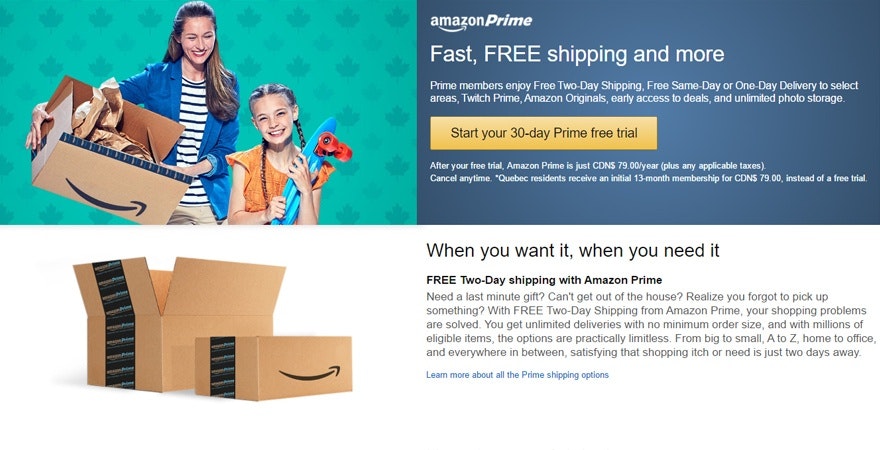
Customers consider shipping times to be one of the worst ecommerce disadvantages. When a customer shops in person, she can take the product home right away. But, with online shopping, most customers receive their products in a week or more.
Although Amazon offers same-day shipping, it wasn’t a profitable model until they created Amazon Prime. It only became profitable because they have tens of millions of Prime members. The solution is to be transparent with your customer. Let them know when they can expect packages when they place an order.
Ecommerce Disadvantages #6: Physical Retail Is Still More Popular Despite Decline

Even though one of the benefits of ecommerce is that it’s growing, physical retail still owns most of the market share. In 2020, the retail industry had accumulated $4.184 trillion despite the COVID-19 pandemic hitting offline stores hard. Yet, online commerce had only made $709.78 billion worldwide.
Starting an online business in the early stages allows you to become a leader in your niche. However, if you have a brick-and-mortar shop, you can consider creating an online presence for your business and vice versa. For instance, Amazon, despite being the biggest online store, is now creating in-person stores. Likewise, retailers like Gap and Macy’s are rushing to go online. As things currently stand,there’s a lot of potential that ecommerce businesses can cash in on.
There you have it — 20 ecommerce advantages and disadvantages that reveal the positives and shortcomings of this business. As you can see, there are more upsides to starting an ecommerce business. Plus, you can overcome the challenges by being persistent and implementing the solutions mentioned above. Ecommerce is a booming field, and we only expect it to grow in the next few years.
Fascinated by ecommerce? Willing to give it a go? Check out these ecommerce terms before you start. They’ll help you better navigate the process of launching an ecommerce business.
Do you have any other questions about running an online business? Let us know in the comments section!
Want to Learn More?
- How I launched my eCommerce store in less than 30 minutes (with products)
- How to Work from Home: 11 Tips to Stay Productive and Focused
- The Ultimate Guide to Mobile Commerce
- How to Create a Website: 5 Ways to Create a Website



